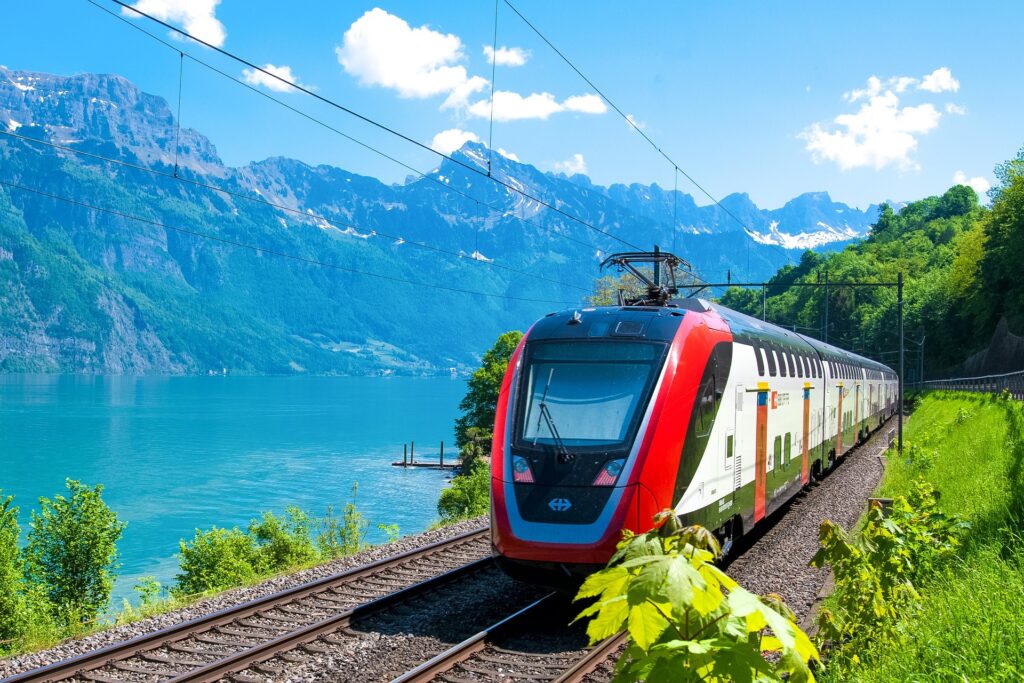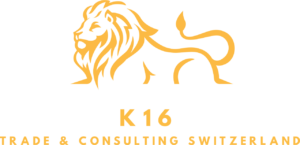New train timetable 2025
The new SBB timetable will come into force on 15 December 2024, bringing numerous changes to Swiss public transport. Find out what changes, what new travel opportunities open up and what existing services will be confirmed.

Main changes for 2025
- French-speaking Switzerland will undergo the biggest timetable update since the Rail 2000 reform in 2004. New connections will be introduced to improve journey times and train frequencies.
- Increased night-time connections for both regional and long-distance traffic, offering greater flexibility and safety for travellers.
- More frequent international connections to strengthen integration with neighbouring countries.
- Special trains for major events: 2025 will be a year full of events (Eurovision Song Contest, UEFA Women’s EURO, Federal Gymnastics Festival, Swiss Wrestling Festival and many more).
New in Ticino
The changes introduced between June and August 2024 will also be confirmed in 2025, consolidating the services offered by TILO:
- TILO RE80: confirmed evening connections between Ticino and Milano Centrale, useful for both commuters and leisure travellers.
- TILO S50: the first morning train will depart from Gallarate instead of Varese, with destination Biasca.
- TILO ‘Pajamas’: night trains will be extended to some pre-holidays, guaranteeing a safe and comfortable return journey.
Long-distance connections
- IC Geneva Airport-Locarno (Saturday): new direct train departing at 5.44 a.m. and arriving at 10.57 a.m.
- IC from Locarno to Lausanne (Sunday evening): brought forward to 19.00 compared to the current departure from Bellinzona (19.20).
- Altdorf station: IC2 trains (Zurich-Lugano) will replace the IC21, offering direct and more frequent connections to Zurich. The IC21 to Basel will no longer stop in Altdorf, but alternatives such as the IR26 and Tellbus with a change in Lucerne will be available.
Line IR35 Aare Linth (Bern-Chur)
New stops in Unterterzen (Flumserberg) and Maienfeld, with direct connections to Zurich.Double-decker trains for more seats.
New connections at the first and last times of the day:
- Chur-Zurich: departure 4.11, arrival 5.48 (daily).Zurich-Chur: departure 5.12 a.m. (Monday-Friday), departure from Ziegelbrücke at weekends.
- Evening trains: departure 23.11 from Chur, 00.23 from Zurich.
Improvements on the main routes
- St.Gallen-Sargans: half-hourly trains at minutes xx.25 and xx.55.
- IR13 St.Gallen-Sargans-Chur: operated by Südostbahn as Alpenrhein-Express. The IR13 SBB from Zurich will terminate in Sargans, with fast connections to Chur and Zurich.
- IC5 Lausanne-Zurich-Eastern Switzerland: upgraded during peak hours (Mon-Fri) and on Sunday afternoons.
Connections for events and overnight news
- Major events in 2025: special trains for Eurovision Song Contest (Basel), UEFA Women’s EURO, Federal Gymnastics Festival (Lausanne), Swiss Wrestling Festival (Mollis) and other national events.
- Winter and autumn pilot project: night connections between Bern and Zurich Airport on selected weekends, with intermediate stops in Olten.
- Christmas and holiday connections: night trains from Biel, Fribourg and Sion to Geneva Airport, useful for those who have to take early flights or return late.
Further regional improvements
- Zurich-Wipkingen: the reopening of the route will reduce journey times between Schaffhausen and Zurich. Most connections will no longer require changes at Zurich central station.
- Christmas markets and winter sports: direct trains from Zurich to Einsiedeln on weekends (30 November-8 December 2024 and 11 January-2 March 2025).
Enhanced regional connections:
- New morning and evening trains in the Basel, Aargau and Zurich regions, as well as between Lucerne and eastern Switzerland.
- Increased connections to Winterthur from Bülach and Bauma.
- More rush-hour trains on the Ebikon-Rotkreuz-Cham-Zug route.
New IC connections between Zurich and Bern with a stop in Wankdorf
From 16 December 2024, a particularly useful new feature will be introduced for commuters travelling between Zurich and Bern. At peak times in the morning and evening, an InterCity (IC) train will make an additional stop in Bern Wankdorf, significantly improving access to the district for those working in the area.
Service details:
- Morning: departure from Zurich HB at 7:49 a.m., arrival in Bern Wankdorf at 8:44 a.m.Evening: departure from Bern Wankdorf at 17:13, arrival in Zurich HB at 18:10.
- Temporary suspension: During the Christmas holidays, from 23 December 2024 to 3 January 2025, the connection will not operate.
New long-distance connections for Renens
Renens benefits from new long-distance transport services, with a range of options to various destinations in Switzerland. Trains include:
- IC5: Route: Rorschach/Zurich HB-Bienne-Neuchâtel-Yverdon-les-Bains-Renens-Lausanne.Frequency: half-hourly.
- IC1: Route: St. Gallen/Zurich HB-Berne-Freiburg-Lausanne-Renens-Geneva/Geneva Airport.Frequency: hourly.
- IR90: Route: Brig-Visp-Sierre-Sion-Martigny-St-Maurice-Montreux-Lausanne-Renens-Geneva/Geneva Airport.Frequency: hourly.
- RE33: Route: Annemasse-Chêne-Bourg-Geneva Eaux-Vives-Geneva Champel-Lancy-Bachet-Lancy-Pont-Rouge-Geneva-Coppet-Nyon-Gland-Rolle-Allaman-Morges-Renens-Losanna-Vevey-Montreux-Villeneuve-Aigle-Bex-St-Maurice.Frequency: half-hourly; extension to Martigny on an hourly basis.
New RegioExpress connections between Berne and Frasne
During the Easter period and from the end of May to mid-October, there are two new RegioExpress connections between Berne and Frasne at weekends.
These new trains allow travellers from Frasne to connect with TGV Lyria trains to Paris. The connection optimises international travel options for those travelling between Switzerland and France, providing greater convenience for passengers travelling to the French capital.
World record for the Rhaetian Railway with the”longest train”
New international
New connections between Zurich and Munich
Starting with the new timetable, an additional train will be introduced on the Zurich-Munich route, giving travellers more flexibility and new travel options.
- Morning connection (Monday-Saturday): An earlier departure from Zurich HB at 5.35 a.m., allowing passengers to arrive in Munich two hours earlier than at present. This new service is particularly useful for travellers who need to reach the Bavarian city early in the morning.
- Evening return connection (Monday-Friday and Sunday): Departure from Munich at 8.55 p.m., arriving in Zurich HB late in the evening. This timetable is designed to facilitate returns after a day of work or leisure.
- Morning EC service from Lindau-Reutin to Zurich (new for Saturday):The morning EuroCity service from Lindau-Reutin to Zurich HB will now also operate on Saturdays, providing an additional weekly travel option.
New connection Zurich – Domodossola (Italy)
The direct train, which leaves Zurich every Saturday at 7.38 a.m. and passes through Lenzburg, Thun, Frutigen and Brig, now continues to Domodossola, offering a convenient connection without changes. This route extension is designed for hikers and market visitors, making the journey to the Swiss-Italian border easier and faster.
Swiss Railways in brief
The Swiss Federal Railways (SBB), also known by its acronyms CFF (in French), SBB (in German) and VFS (in Romansh), is one of Switzerland’s major public railway companies. Founded in 1902, the company is wholly owned by the Swiss Federal Council and operates a national rail network stretching over 3,200 km.
SBB is a public company operating with entirely public capital. Its legal structure is that of a joint-stock company (AG), established under the Swiss Federal Railways Act (SBBG) of 1998. The company’s headquarters are in Berne, but its influence and operations extend throughout Switzerland and also internationally, with numerous connections to neighbouring countries such as Italy, France, Germany and Austria.
In addition, SBB distinguishes itself through technological innovation, safety and the integration of services with other modes of transport, such as buses and boats. With a vision of sustainability and modernity, SBB continues to invest in high-speed trains and digitisation, consolidating its position as one of the best examples of public transport worldwide.






